History of RAGT Group
The RAGT brand has long been known in Rouergue and the neighbouring regions, as well as by many farmers throughout France and beyond its borders.
Indeed, RAGT, a regional company born in Aveyron and still firmly rooted there, has over the decades, stood up to the major international markets.
1919...
At the beginning
Stemming from the Aveyron agriculture, RAGT took over from the commercial services of agricultural unions, the first of which dated back to 1885, and essentially started to expand from 1905 onwards.
RAGT was truly born on 22 February 1919, under the name of Coopérative Agricole Rouergue-Auvergne-Gévaudan, on the initiative of Maurice Anglade, then Chairman of the Union des Associations Agricoles du Plateau Central. The first Chairman was Charles de Rodat, a farmer in the commune of Druelle, near Rodez.
“Created by farmers for farmers”, RAGT has set itself the objective of “ensuring them training, disseminating technical progress, providing them with quality products and promoting and assisting animal and plant production in every way possible“.
...1925...1957...
A major turning point
At the end of the First World War, agriculture evolved and become more professional. New economic requirements were emerging. The need for financing made it necessary to have equity capital and working capital. The cooperative status is no more adapted.
An extraordinary general meeting convened on 8 July 1925 by Maurice Anglade decided to dissolve and liquidate the agricultural cooperative. This was followed by the creation of a limited company.
On this occasion, some farmers who had a large number of shares were brought together to ensure the control and governance of the company. This is when the company takes on its family character.
Already at the origin of the constitutive general assembly, Maurice ANGLADE, the spiritual father of RAGT, remained very influential within the board of directors until 1943.
Paul DUVIVIER, an agricultural engineer, joined RAGT in 1932 and became General Director in 1943. He was elected President in December 1957.
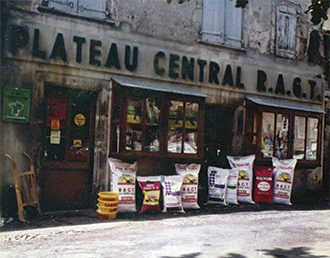
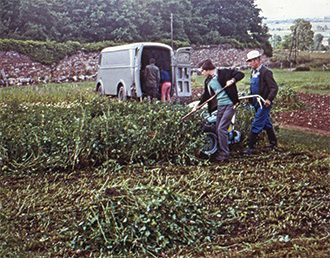
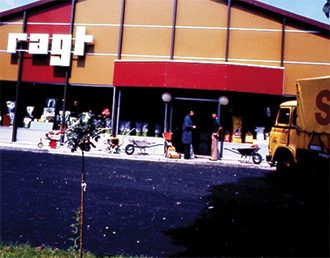
...1973...
To the European market
Emile Singla succeeded him in 1973.
As a farmer and agricultural engineer, he followed on in the footsteps of his predecessors and continued to develop and diversify RAGT’s activities, in particular by giving a decisive boost to the seed business and research.
It was at this time that an agreement was entered into with the American Dekalb (1972-1999), which allowed RAGT to launch breeding programmes in maize, sorghum and subsequently, sunflower.
It was also in the 1970s that RAGT bolstered its position on the European markets. Fourteen years later, the first foreign sales subsidiary was created: RAGT Saaten in Germany and Austria.
...1997...
The RAGT Groupe was born
In the late 1990s, the company was re-structured. The branches of activity are transformed into fully-fledged subsidiaries. Thus RAGT Semences was created with the regional activity housed in RAGT Plateau Central. The RAGT group was born, set up in a magnificent, brand new building, still in Rodez.
During this period, Edouard Fabre and Alain Fabre succeeded each other as Chairman of the Executive Board and then of the Supervisory Board.
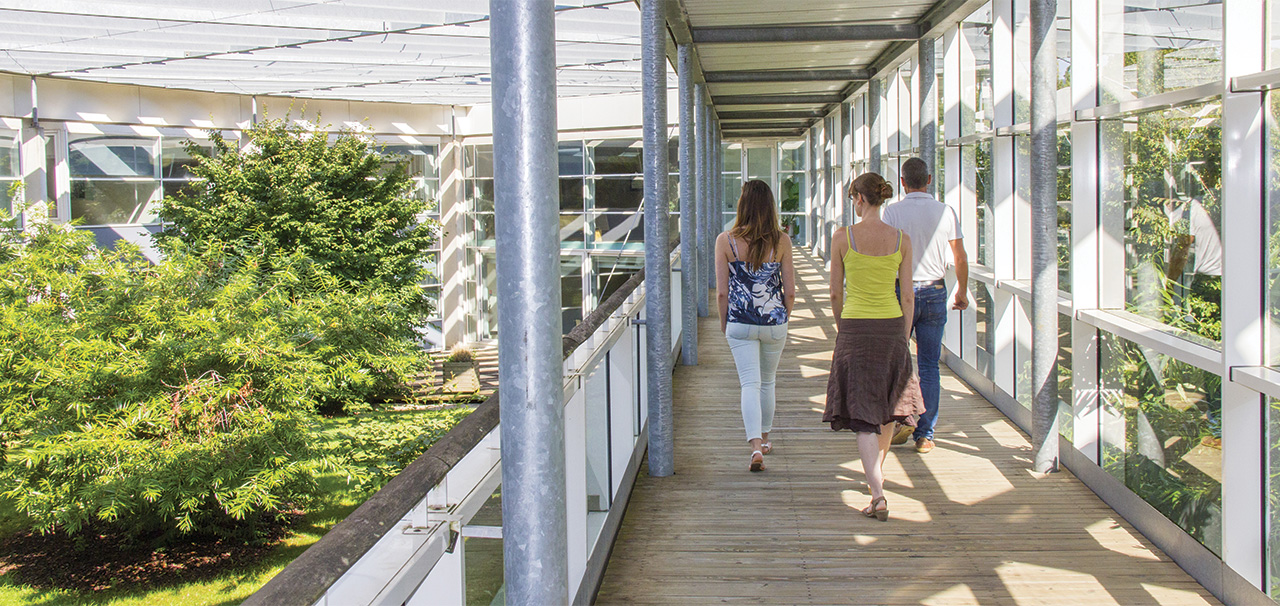
...2001...2010...
RAGT Semences
Between 2001 and 2010, RAGT Semences created roughly ten subsidiaries (Poland, Great Britain, Australia and New Zealand, Spain, Ukraine, etc.).
At the same time, RAGT Semences bought up the PBIC cereal business from Monsanto and became a major new stakeholder in the straw cereal market (soft wheat, malting barley).
En 2010, RAGT incorporated Serasem.
RAGT Semences had now become a key player on the European market. The company developed a wide range of field seeds for 85% of the European UAA, dominated the soft wheat market in Europe since 2010 and also held leading positions in the European maize, sunflower, rape and soybean markets.
Fully committed to innovation, with a strong research activity of some 300 people across Europe, RAGT Semences invests nearly 18% of its turnover in research each year.
RAGT Plateau Central
At the same time, RAGT Plateau Central consolidated its leading position in its original territory by buying up businesses and structuring its offer: creation of the Terrya subsidiary in 2009, Prodial, an industrial food and logistics company in 2011 and a stake in the new CELIA cooperative in 2015.
Being committed to strong, unifying and value-driven policies, RAGT Plateau Central created a Consulting, Innovation and Development (CID) Department and bolstered its offering with an organic department and a new mash manufacturing unit.
RAGT Plateau Central also strengthened its proximity to the general public by modernising and developing its 29-strong store base under the RAGT Jardin et Maison banner.
RAGT Energie
The RAGT group also took up a new challenge in agriculture by designing a new type of fuel: Calys vegetable pellets.
RAGT Energie, created in the 2000s, is developing this fuel, but the bigger picture is to address important research needs in this emerging sector.
...2013...2021...
During these eight years, the RAGT group will be chaired by Claude Tabel, until then Managing Director of RAGT 2n and member of the Executive Board since 2006. He succeeded Daniel Segonds.
The latter, the current chairman of the supervisory board, joined the company in 1974 as head of maize breeding, became director of seed business in 1995, general manager in 2003 and chairman of the management board in 2005.
In the trajectory of the RAGT Group, 2019 was an important year, as it celebrated its centenary! 100 years of passion for agriculture and innovation.
Since then, the Group’s development continues. RAGT Semences strengthens its position in the Pacific by taking full control of two companies Seed-Force New Zealand and Seed-Force Australia (2020). RAGT Semences signs a research cooperation agreement in 2021 with Bayer to develop hybrid wheat seeds for the European markets.
...2021...2024
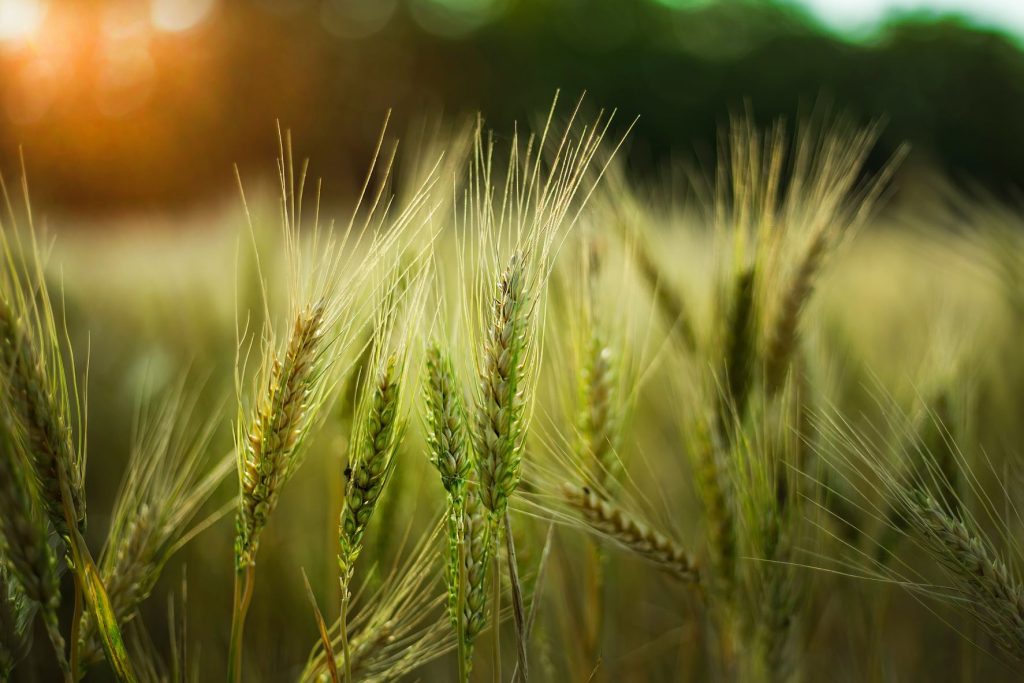
In December 2021, Laurent Guerreiro, member of the Executive Board since 2015 and Managing Director of RAGT Semences since 2017 (he succeeded Claude Grand), takes over as Chairman of the Executive Board.
That year, RAGT Plateau Central and Sanders renewed their partnership agreement, with the same ambition that has been driving them since 1936: to bring real innovations and performance to the farmers of Occitanie with locally produced food.
Following the integration of Seedforce, which became RAGT Australia on 1 January 2023, RAGT confirms its ambition in Australia by acquiring the wheat assets of BASF.
For its part, RAGT Plateau Central strengthens its position on the markets of vegetable products by acquiring the Tarn trading company Bosc et Izarn.